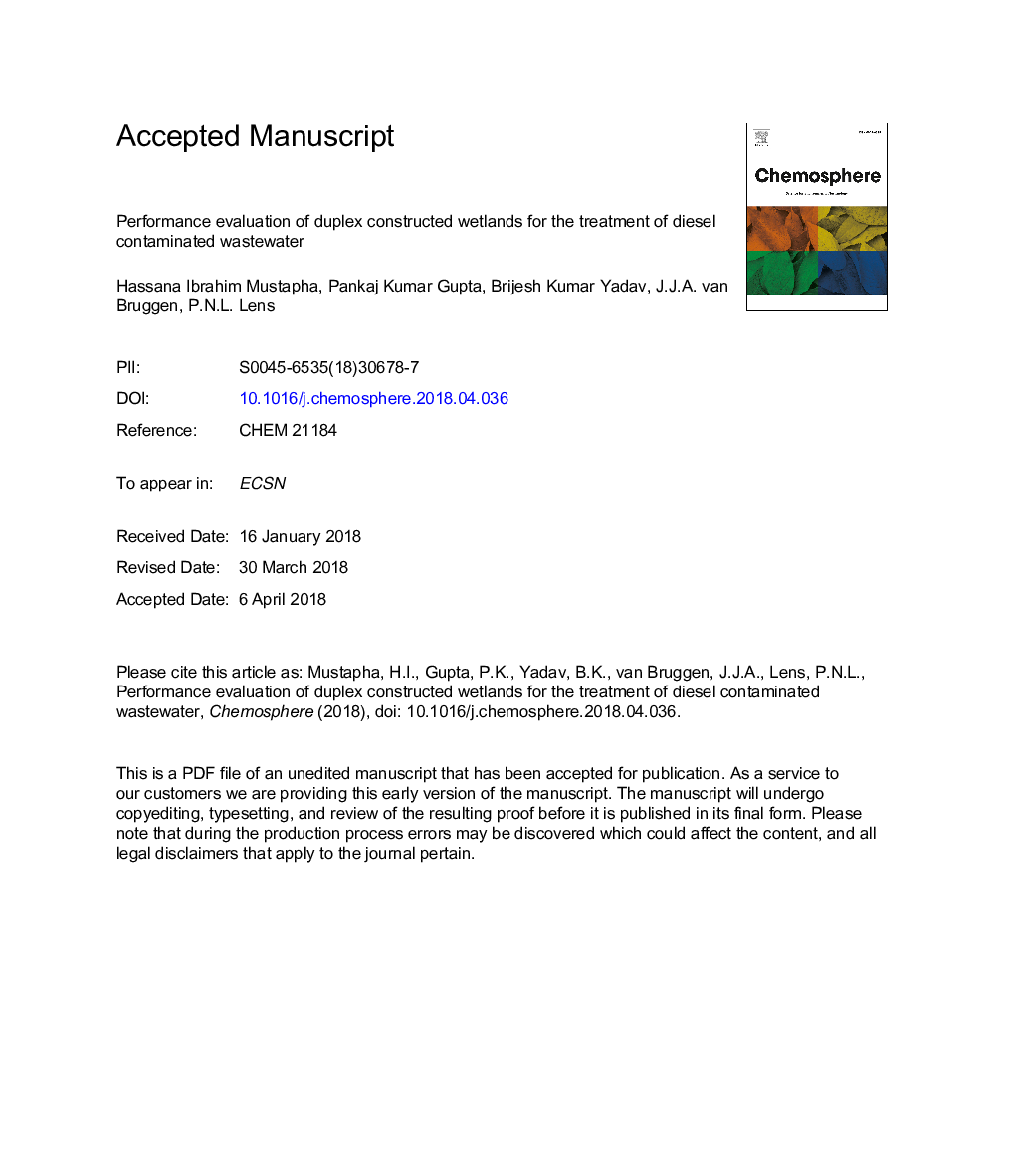| Article ID | Journal | Published Year | Pages | File Type |
|---|---|---|---|---|
| 8851127 | Chemosphere | 2018 | 44 Pages |
Abstract
A duplex constructed wetland (duplex-CW) is a hybrid system that combines a vertical flow (VF) CW as a first stage with a horizontal flow filter (HFF) as a second stage for a more efficient wastewater treatment as compared to traditional constructed wetlands. This study evaluated the potential of the hybrid CW system to treat influent wastewater containing diesel range organic compounds varying from C7 - C40 using a series of 12-week practical and numerical experiments under controlled conditions in a greenhouse (pH was kept at 7.0â¯Â±â¯0.2, temperature between 20 and 23° C and light intensity between 85 and 100-μmol photons mâ2 secâ1 for 16â¯hâ¯dâ1). The VF CWs were planted with Phragmites australis and were spiked with different concentrations of NH4+-N (10, 30 and 60â¯mg/L) and PO43--P (3, 6 and 12â¯mg/L) to analyse their effects on the degradation of the supplied petroleum hydrocarbons. The removal rate of the diesel range organics considering the different NH4+-N and PO43--P concentrations were simulated using Monod degradation kinetics. The simulated results compared well with the observed database. The results showed that the model can effectively be used to predict biochemical transformation and degradation of diesel range organic compounds along with nutrient amendment in duplex constructed wetlands.
Related Topics
Life Sciences
Environmental Science
Environmental Chemistry
Authors
Hassana Ibrahim Mustapha, Pankaj Kumar Gupta, Brijesh Kumar Yadav, J.J.A. van Bruggen, P.N.L. Lens,
